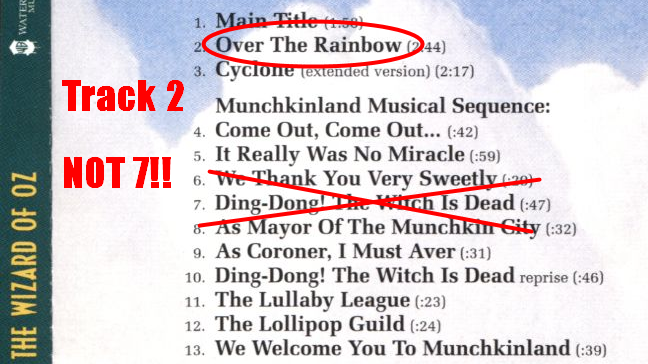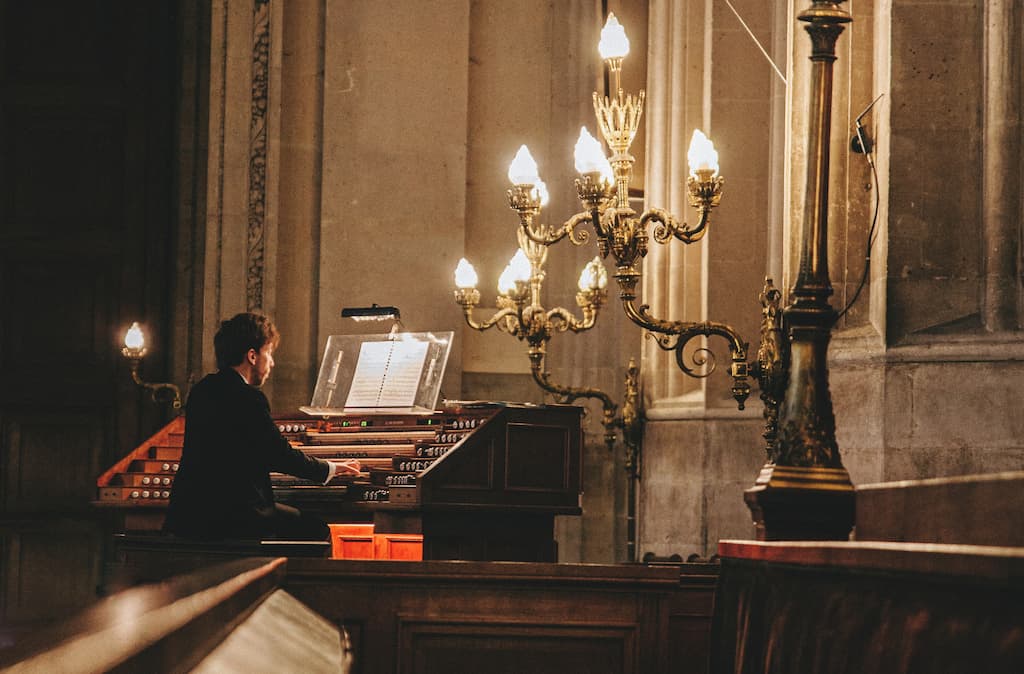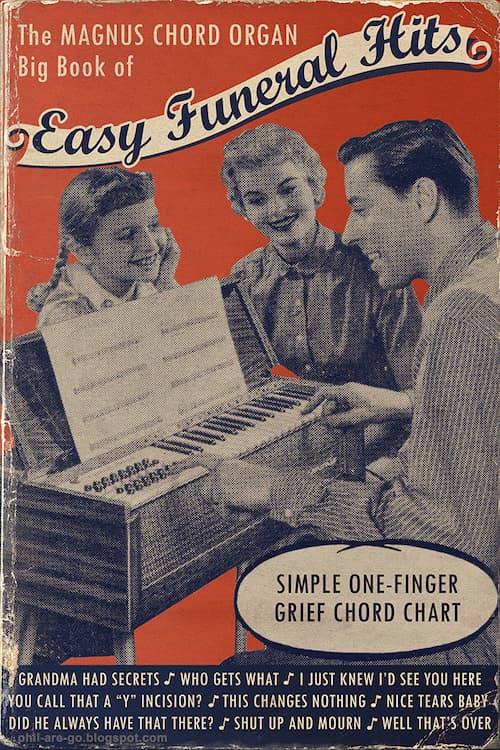Music for funerals and memorial ceremonies
When planning a funeral or memorial ceremony, choosing appropriate music can be an important part of honouring and remembering the deceased. Choices may depend on whether the mood is intended to be sad and contemplative, or instead celebrating the life of the person (and/or their transition to a 'better place' for those with such religious views). There is a trend in recent years — particularly with younger people — to steer clear of some of the more traditional pieces, such as Chopin's Funeral March, and have less religious or classical music, choosing secular songs over sacred.

When is music played?
For ceremonies in the UK, whether church or crematorium, it is common (and best practice) to plan music for the following times:
- Before the service, while people are gathering (the prelude)
- At the entrance of the coffin (the "In")
- For various hymns or songs during the service
- Note that the name is not enough, as many well-known hymns such as "The Lord's my shepherd" or "All things bright and beautiful" can be sung to a variety of tunes.
- For any periods of quiet contemplation
- For the exit of the coffin (the "Out")
- After the service, while people are leaving (the postlude)
How is music played?
Some people request songs or pieces with a special meaning for the deceased — or indeed, for those left behind — and occasionally they will want to play these via CD, iPod/iPhone or similar technology. This can work well, but we often see problems, such as:
- Technology failure — PA fails, CD player fails, disc is the wrong format (e.g. not 'finalized')
- Human failure — the wrong disc is handed over, someone plays the wrong track (e.g. instead of "Somewhere Over the Rainbow", everyone hears "The Wicked Witch Is Dead"!), or it continues into the next track

- Legal failures — venues need to be licensed for all music that is to be played, via schemes such as PRS, and not all are
- Timing failures — if things are delayed, do you simply play the same music over and over again, or sit in silence?
- People can be distracted by the technology, rather than focusing on the moment
An experienced funeral director should check and arrange for everything like this in advance, of course.
For live music, there are many options, depending on the venue and also the budget. A church or crematorium will generally have a pipe organ or electronic organ, which can provide a solemn and respectful atmosphere and only require one musician. Professional organists such as ourselves will often be able to play an arrangement of most pieces requested, such as those shown on this page, and keep playing appropriate music — or even improvising — to cover any delays or awkward gaps.

String quartets and similar ensembles can add a unique touch to the service, especially if the deceased was a musician — we arranged a whole orchestra once, for a conductor's memorial service. It may be best to use an organ too to accompany any songs if there is a large number of mourners. If the church also has a choir available, they can help support the hymns (mourners are sometimes too upset to sing out, or lack confidence), and can impart a beautiful and uplifting element to other parts of the ceremony, especially if they sing an anthem, often by Harris, Parry, Rutter, Stanford, Vaughan Williams or similar British composers.
What type of music is played?
Unless the deceased has left clear instructions, it's normally up to the family to choose music that will suit the person who has died but also those who will be attending. Funeral directors and musicians do this kind of work every day, so will generally not be shocked even by the most outlandish requests. For example, "Always look on the bright side of life" (from Monty Python's "The Life of Brian") was once banned in many locations, but is now a popular choice, and services at crematoriums often end with something aimed at producing a final laugh: see below. Conversely, those anxious not to offend anyone often go for well-known pieces of classical music or classic songs (think ClassicFM 'hall of fame'), and if in doubt, sometimes take inspiration from televised funerals, e.g. of the Royal Family. If there are military connections, The Last Post (and The Reveille) may be played: for which of course you'll need a trumpeter or bugler.
Popular songs and instrumental pieces
Some popular choices of music we have played are shown below.
- Albinoni's "Adagio" (actually composed by Giazotto!)
- Handel's "Largo" from Xerxes
- Handel's "I know that my Redeemer liveth"
- Purcell's "Golden" Sonata (the video below shows all five movements being played before the funeral of local author Anneli Jones by some of her children)
- JS Bach's "Sheep May Safely Graze"
- JS Bach's "Jesu, Joy of Man's Desiring"
- JS Bach's double violin concerto
- Mozart's "Ave Verum Corpus"
- Beethoven's "Moonlight Sonata"
- Mendelssohn's "O Rest in the Lord" from Elijah
- "Ave Maria" (Schubert or Gounod)
- "Going Home" (based on Dvořák's "New World" Symphony, a.k.a. the Hovis advert)
- Verdi's "Requiem Mass: Dies Irae"
- Elgar's "Nimrod" (I vow to thee…) from the Enigma Variations
- Elgar's "Chanson de Nuit"
- Barber's "Adagio"
- Fauré's "In Paradisum" from Requiem
- "Pie Jesu" (Fauré or Lloyd Webber)
- Howells "Psalm Preludes"
- Darke's "Brother James’s Air"
- Parry's "Jerusalem"
- Vaughan Williams's "Rhosymedre"
- Debussy's "Clair de Lune"
- "Empty chairs at empty tables" from Les Misérables
- "Bring him home" from Les Misérables
- Elton John's "Candle in the Wind"
- Sinatra’s "My Way"
- Procul Harum's "Whiter Shade of Pale"
- "You’ll Never Walk Alone"
Hymns and worship songs
Most of these are appropriate for any denomination — Anglican, Baptist, Catholic, etc. — depending on the preference of the family and the priest or minister conducting the service. Larger, more formal services might also include liturgical music such as chants, responsories, or psalms.
- The Lord's My Shepherd (note: 'Crimond' and 'Goodall' a.k.a. 'The Vicar of Dibley' are two popular versions but very different in style)
- Abide with Me
- Dear Lord and Father of Mankind
- Love Divine, All Loves Excelling (note: several tunes)
- Guide Me, O Thou Great Redeemer
- Be Thou My Vision
- O Lord, My God, When I in Awesome Wonder
- How Great Thou Art
- Amazing Grace
- Panis Angelicus
- The day Thou gavest, Lord, is ended
- All My Hope on God is Founded
- Christ is made the sure foundation
- The Lord Bless You and Keep You
Risky choices
If you're happy for the event to be a celebration, and don't mind shocking people with 'inappropriate' humour (funeral directors tell the best jokes...) or profane music, there is a huge selection, especially for crematorium services.

- Monty Python’s "Always Look on the Bright Side of Life"
- "Smoke gets in your eyes"
- "C'mon Baby, light my fire"
- "Colours of Day" (the chorus starts with "So light up the fire and let the flame burn, Open the door…")
- "Going Underground" by The Jam or "Going Deeper Underground" by Jamiroquai
- "I'm gonna live forever" from Fame
- Queen's "Don't stop me now!"
- "Death is just around the corner" from The Addams Family
- and countless songs with Hell in the title, e.g. Highway to Hell, Bat out of Hell, etc.